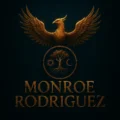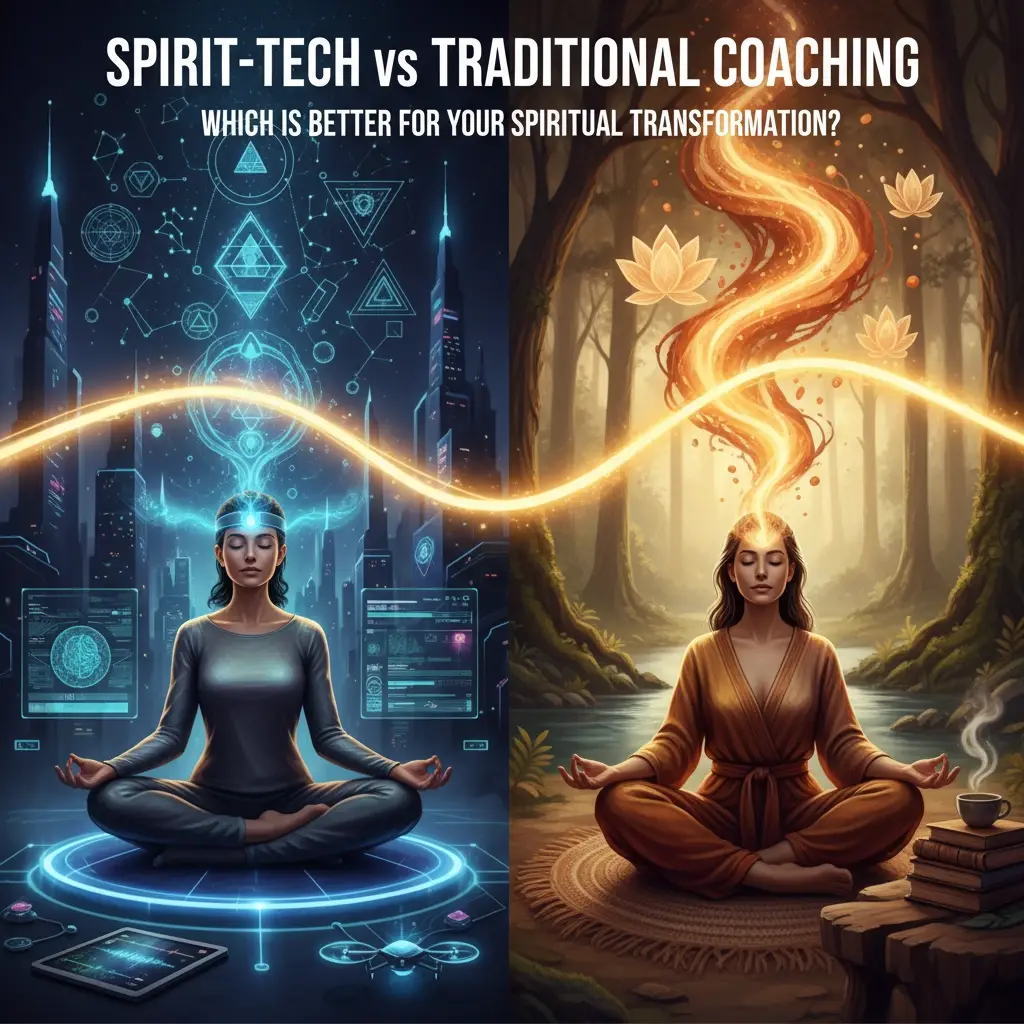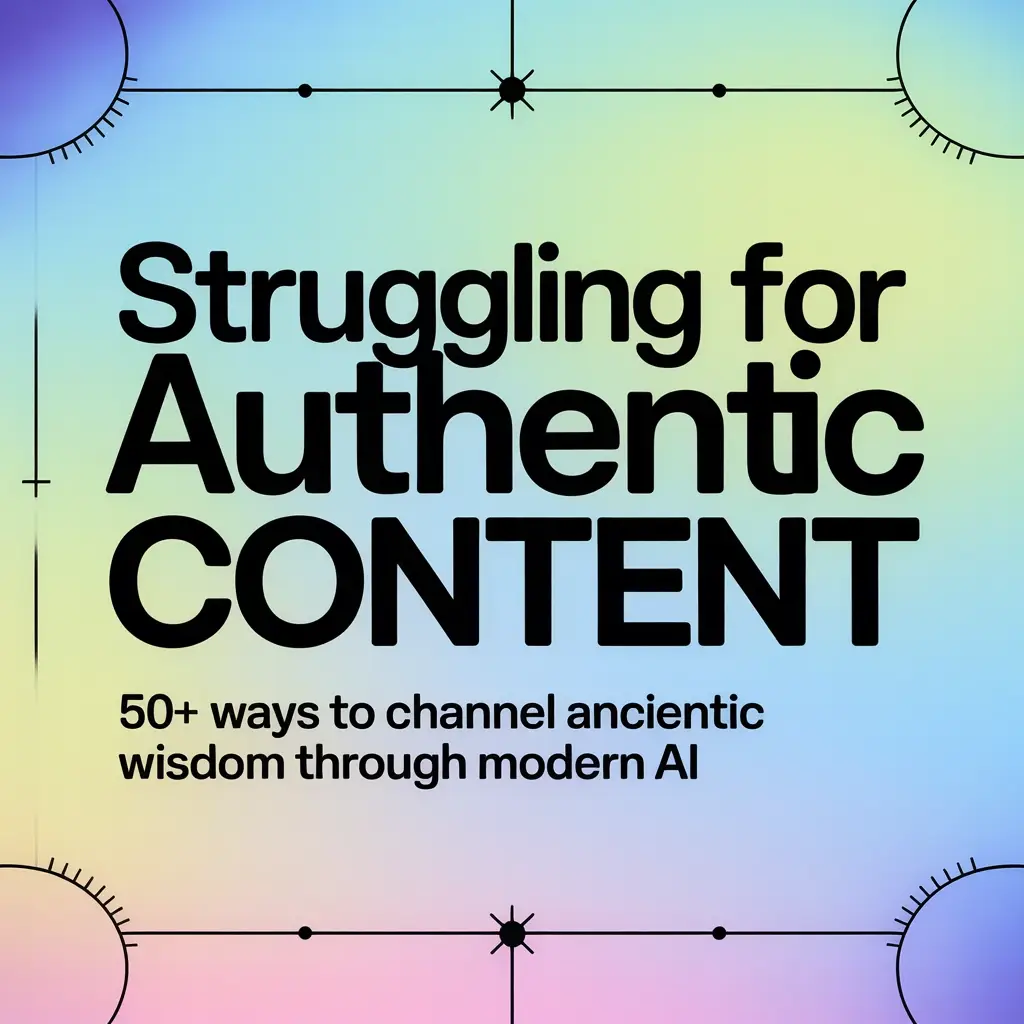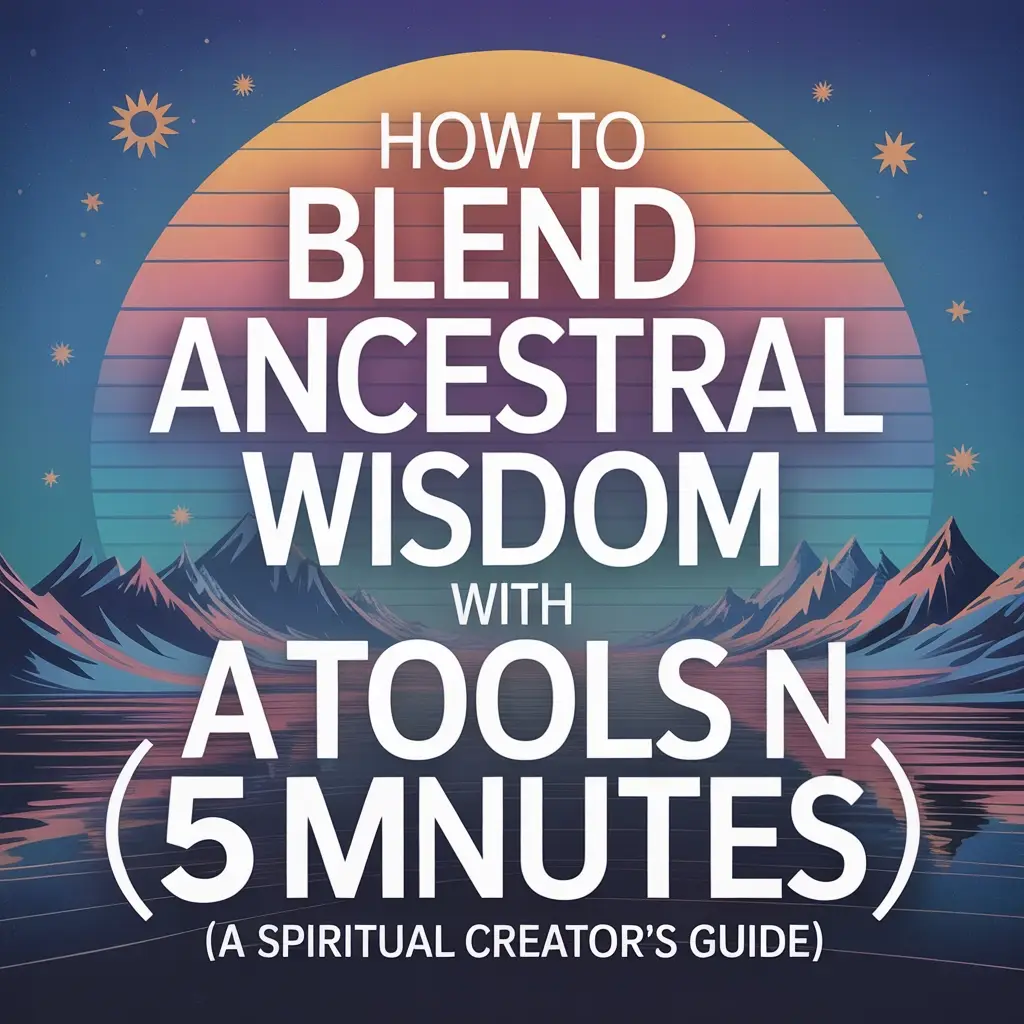Spiritual transformation requires choosing the right coaching approach. Two distinct methodologies emerge: Spirit-Tech coaching that integrates technology with spiritual practices, and Traditional coaching focused on conventional personal development methods.
Understanding Spirit-Tech Coaching
Spirit-Tech coaching combines spiritual guidance with technological tools. This approach uses AI-powered insights, meditation apps, biofeedback devices, and digital tracking systems to enhance spiritual development.
The methodology incorporates:
- AI analysis of spiritual progress patterns
- Digital meditation tracking and guided sessions
- Biometric monitoring for emotional and energetic states
- Virtual reality environments for immersive spiritual experiences
- Data-driven insights into personal transformation patterns

Technology integration allows for continuous monitoring and personalized adjustments to spiritual practices. The approach provides measurable data on meditation consistency, emotional regulation patterns, and spiritual growth indicators.
Traditional Coaching Framework
Traditional spiritual coaching relies on established methods without technological enhancement. This approach emphasizes direct human connection, intuitive guidance, and time-tested spiritual practices.
Core elements include:
- Face-to-face or voice-only sessions
- Manual journaling and reflection exercises
- Traditional meditation and mindfulness practices
- Energy healing techniques like Reiki or chakra balancing
- Intuitive guidance based on coach experience
The method focuses on developing inner awareness through conventional practices. Progress tracking occurs through subjective reporting and coach observation rather than digital metrics.
Effectiveness Comparison
Measurement and Progress Tracking
Spirit-Tech coaching provides quantifiable progress metrics. Users access detailed analytics showing meditation streaks, emotional stability trends, and spiritual practice consistency. The data reveals patterns that might remain hidden in traditional approaches.
Traditional coaching relies on subjective assessment. Progress evaluation depends on personal reporting and coach intuition. This method may miss subtle patterns but captures nuanced spiritual experiences that technology cannot measure.

Accessibility and Convenience
Spirit-Tech coaching offers 24/7 availability through apps and digital platforms. Users access guidance, meditation sessions, and progress tracking at any time. Geographic limitations disappear as virtual sessions connect clients with coaches globally.
Traditional coaching requires scheduled sessions and physical or live virtual presence. Availability depends on coach schedules and time zones. Travel may be necessary for in-person sessions.
Personalization Depth
Spirit-Tech coaching analyzes user data to customize recommendations. AI algorithms identify optimal meditation times, suggest practice modifications based on stress levels, and adapt guidance to individual progress patterns.
Traditional coaching provides personalization through human intuition and experience. Coaches read energy, observe non-verbal cues, and adjust approaches based on spiritual sensitivity rather than data analysis.
Cost Analysis
Spirit-Tech Investment
Initial costs include app subscriptions, biofeedback devices, and platform access fees. Ongoing expenses involve software updates and premium feature upgrades. The investment ranges from moderate for basic apps to significant for comprehensive tech-enhanced programs.
Traditional Coaching Expenses
Costs center on coaching session fees and travel expenses for in-person meetings. Premium traditional coaches command higher rates for experience and reputation. Long-term investment depends on session frequency and duration.

Learning Style Compatibility
Data-Driven Learners
Spirit-Tech coaching suits individuals who respond to metrics and measurable progress. Visual learners benefit from charts, graphs, and progress dashboards. Tech-comfortable users appreciate app interfaces and digital tools.
Intuitive Learners
Traditional coaching serves those who prefer human connection and energetic exchange. Individuals seeking deep emotional support and intuitive guidance find traditional methods more resonant.
Limitations Assessment
Spirit-Tech Constraints
Technology dependence creates vulnerability to device failures and connectivity issues. Digital overwhelm may distract from spiritual focus. AI recommendations lack human intuition and may miss spiritual subtleties.
Data privacy concerns arise with personal spiritual information stored digitally. Over-reliance on metrics might reduce spiritual practice to numbers rather than meaningful experience.
Traditional Coaching Limitations
Schedule constraints limit access to guidance when needed most. Geographic restrictions reduce coach selection options. Progress tracking relies on memory and subjective assessment, potentially missing important patterns.
Human bias may influence coach recommendations. Session costs accumulate over time, making long-term coaching expensive for many individuals.

Integration Potential
Hybrid approaches combine both methodologies effectively. Users might employ Spirit-Tech tools for daily practice tracking while maintaining traditional coaching relationships for deeper spiritual exploration.
Weekly traditional sessions provide human connection and intuitive guidance. Daily tech tools offer practice support and progress monitoring. This combination maximizes both measurement accuracy and spiritual depth.
Recommendation Framework
Choose Spirit-Tech If You:
- Prefer data-driven progress tracking
- Value convenience and 24/7 access
- Learn well from visual feedback and metrics
- Have budget constraints limiting frequent coaching sessions
- Feel comfortable with technology integration
Choose Traditional Coaching If You:
- Prioritize human connection and energetic exchange
- Prefer intuitive guidance over data analysis
- Value privacy for spiritual information
- Learn best through direct interaction
- Have budget capacity for regular sessions
Consider Hybrid Approach If You:
- Want comprehensive spiritual development
- Appreciate both measurement and intuition
- Have moderate budget for combined methods
- Seek flexibility in guidance access
Implementation Strategy
Start with a 30-day trial of your chosen approach. Track satisfaction levels, progress indicators, and accessibility needs. Assess whether the method aligns with your spiritual development goals.
Monitor engagement levels and practice consistency. Note which aspects provide the most value and which elements feel less effective for your transformation process.
Adjust the approach based on initial results. Consider switching methods or integrating both if the first choice proves insufficient for your spiritual growth needs.

Final Assessment
Both Spirit-Tech and Traditional coaching offer valid pathways for spiritual transformation. The optimal choice depends on individual learning preferences, technology comfort, budget considerations, and spiritual development goals.
Spirit-Tech coaching excels in accessibility, measurement, and continuous support. Traditional coaching provides depth, human connection, and intuitive guidance. Neither approach guarantees superior results universally.
Success depends more on consistent practice and commitment than on methodology selection. Choose the approach that aligns with your natural preferences and supports sustained engagement with spiritual development work.
Consider starting with the method that feels most natural, then exploring integration possibilities as your spiritual practice evolves. The most effective transformation often combines multiple approaches tailored to individual needs and circumstances.



